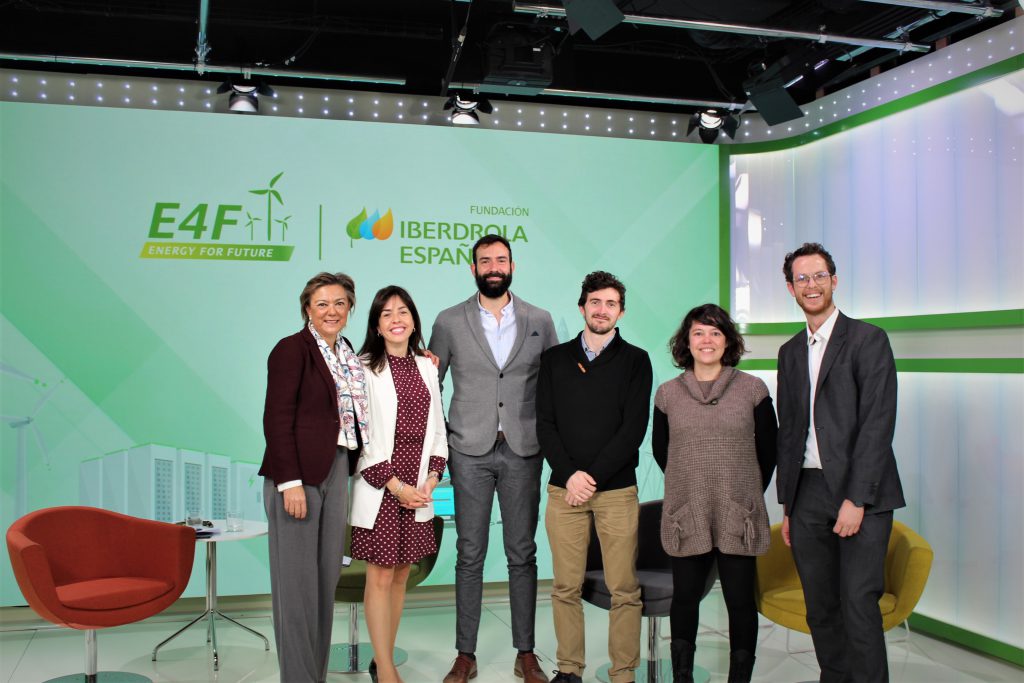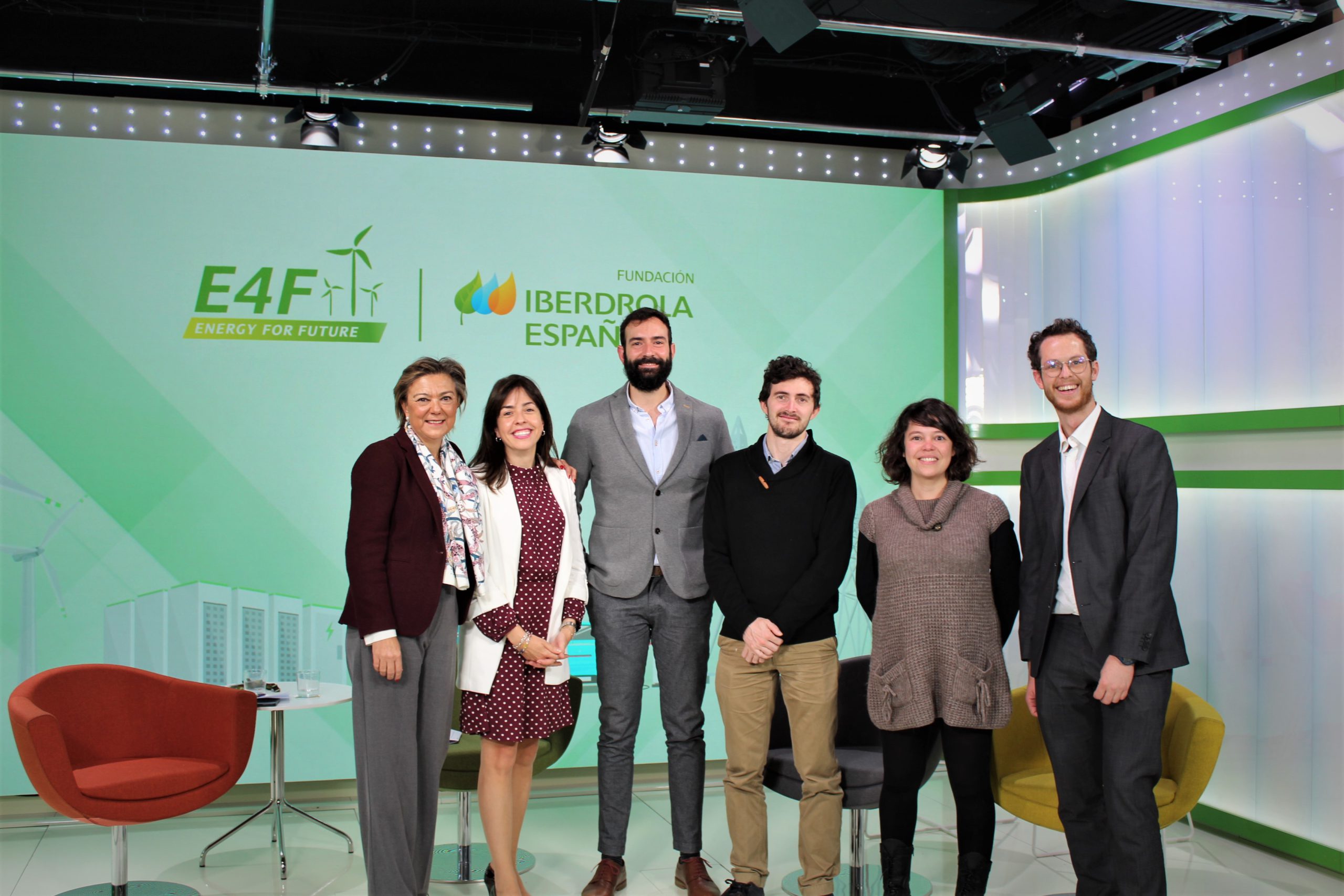Young fellows from the ‘Energy for Future’ program present their developments in technologies to drive the energy transition
- Iberdrola hosts the meeting after the first year of the international program it promotes with the European Commission
- It involves 28 participants from 15 European and American universities in two calls over five years
- The young people have already begun professional exchanges in the company’s companies to bring their research closer to the reality of the sector
The international postdoctoral research program ‘Energy for Future (E4F)’, promoted by Fundación Iberdrola España in collaboration with the European Commission’s Research Executive Agency (REA), has presented the progress achieved in the first year of its implementation. 14 fellows from the current call participated in a meeting organized by the company to explain the evolution of its developments in photovoltaic and wind energy, the evolution of electric vehicles, energy storage solutions, and the consolidation of smart grids.
“Developing competitive renewable technologies is key in accompanying the energy transition and the decarbonization of the economy” explained Beatriz Crisóstomo, head of Global Innovation at Iberdrola during the meeting and “research projects such as those that are part of ‘Energy For Future’, contribute to progress towards this goal“.
Research into new materials for batteries and photovoltaic modules, floating wind energy, and artificial intelligence to improve the operation and maintenance of wind farms are some of the projects being developed under the program.
With a budget of 4 million euros, E4F will run until 2025. A total of 28 fellows from 15 universities will participate, with the opportunity to generate knowledge exchange between the different research centers and professional stays to bring their research closer to the reality of the sector. Two of them have already begun their 6-month stay in Iberdrola’s innovation area to deepen their project related to energy storage. The young people of the first call will be part of professional exchanges in the coming months at Iberdrola headquarters in the USA, Mexico, United Kingdom, and Spain.
Representatives of the university centers participated in the meeting with the current scholarship fellows, which was also attended by part of Iberdrola’s innovation team and representatives of Fundación Iberdrola España. Teresa Rodríguez de Tembleque, head of the Foundation’s Training and Research Programs, focused on the “important research effort among the challenges of the energy transition, in which collaboration between universities and companies is a fundamental pillar“.
The participating universities include European and American universities, Massachusetts Institute of Technology (MIT) in the United States, Rochester Institute of Technology Universidad Nacional Autónoma de México; University of Strathclyde and Imperial College of London, in the United Kingdom; Université de Bordeaux, in France; and Fraunhofer Institute for Solar Energy Systems, in Germany.
These centers are joined by 8 Spanish centers: Universidad Politécnica de Madrid, Universidad Carlos III, Universidad de Cantabria, Universidad Pontificia de Comillas, Universidad del País Vasco, Universidad de Salamanca, IMDEA Energía and Polymat – Basque Center for Macromolecular Design and Engineering.
Iberdrola, with excellence in education and training
Since 2011, Fundación Iberdrola España has promoted the development of projects of more than 750 young fellows with a contribution of more than 14 million euros.
It is also part of Iberdrola’s commitment to excellence in training. Fundación Iberdrola collaborates with scholarship programs of various institutions such as the Fulbright Commission, which each year calls for Iberdrola-Fullbright scholarships; Fundación Carolina, which has a program for Mexican and Brazilian students; and the restoration workshops of the Museo Nacional del Prado and the Museo de Bellas Artes de Bilbao, which allow future specialists to complete their training in the conservation and restoration programs of these institutions.


